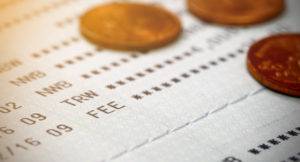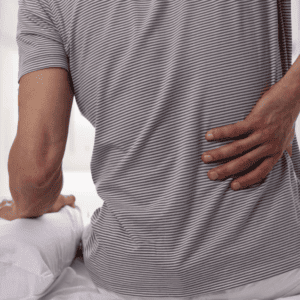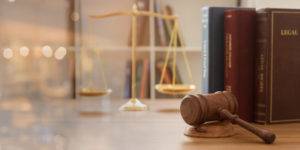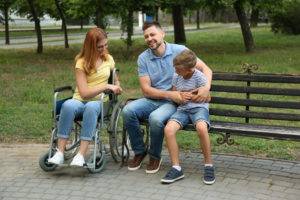Accidents can happen in the blink of an eye—one moment you’re walking through your favorite store or a local business, and the next, you’re lying on the floor, reeling from a sudden, unexpected fall. Slip and fall injuries can be more than just a painful inconvenience; they can disrupt your life physically, emotionally, and financially. If you’ve been hurt on someone else’s property here in Florida, it’s important to understand your rights. Florida law expects business owners to keep their premises safe, and when they fail, you shouldn’t have to shoulder the burden alone.
Your Rights on Florida Business Premises
Every business in Florida has a responsibility to keep their place safe for visitors. This responsibility is part of what’s known as premises liability law. Property owners and operators must regularly check for hazards—like wet floors, uneven walkways, or poor lighting—that might cause someone to slip or fall. If they ignore these dangers, they may be legally accountable for injuries that result.
Understanding this is the first step toward protecting yourself. When a business lets conditions become unsafe, they breach the duty of care they owe to every visitor. This opens the door for injured parties to seek compensation for medical bills, lost wages, pain, and suffering.
Need free legal help in Florida?
We specialize in personal injury claims.

What Causes Slip and Fall Accidents? Common Hazards to Watch For
Sometimes hazards are obvious, but more often, dangers lurk where we least expect them. Knowing the common causes can help you spot risks and also support your case if you’re hurt.
- Wet or Slippery Floors: Whether from a spilled drink, a leaking pipe, or freshly cleaned mopping, slick floors are a frequent cause of falls. Even a small patch of moisture can be dangerous.
- Uneven or Damaged Surfaces: Cracked sidewalks, loose tiles, or curled carpeting create tripping hazards that are especially risky if they’re hidden or not marked.
- Poor Lighting: Dimly lit corridors, stairways, or parking lots can hide dangers and make it difficult to walk safely.
- Cluttered Walkways: Merchandise, boxes, or other obstacles left in aisles or pathways block safe passage and lead to unexpected falls.
These hazards are preventable. Your injury might be the result of the business’s failure to properly maintain a secure setting for their customers.
What You Should Do If You’ve Been Injured
The moments and days following a slip and fall are critical. How you respond can impact your health and your ability to hold the responsible party accountable. Here’s a practical checklist:
- Get Medical Attention Right Away: Some injuries aren’t immediately obvious—internal bleeding, concussions, or soft tissue damage may develop over time. A prompt professional evaluation not only protects your well-being but also creates a documented record of your injuries.
- Report the Incident to Management: Tell the business’s manager or owner about what happened. Ask for and keep a copy of their incident report, which records the details while they’re fresh.
- Document Everything: Use your phone to take clear photos of the exact spot where you fell, focusing on the dangerous condition (a wet floor, broken step, etc.). Also photograph your injuries if visible.
- Preserve Evidence: Hold on to the clothing and shoes you wore when you fell — they may show crucial evidence of the hazard or the nature of your fall.
- Talk to Witnesses: If anyone saw the fall, politely collect their names and contact information. Their statements can prove valuable in backing up your claim.
How Florida’s Premises Liability Law Protects You
The law distinguishes different categories of visitors, which affects the level of care a property owner owes you:
- Invitees: If you were invited onto the property for a business purpose (like shopping), you are an invitee. Property owners owe invitees the highest duty—to inspect regularly and fix or warn about hazards.
- Licensees: These are social guests or people on the property for non-business reasons. Owners must warn licensees of known dangers but aren’t required to search actively for hazards.
- Trespassers: If you were on the property without permission, owners have only a limited duty—not to intentionally harm you.
The majority of slip and fall visitors are invitees, which strengthens your claim that the business should have maintained safe conditions.
Need free legal help in Florida?
We specialize in personal injury claims.

How to Prove the Business was Negligent
Winning a slip and fall case requires showing four key things happened:
- Duty of Care: The business had a responsibility to keep you safe.
- Breach of Duty: They failed to meet that responsibility, allowing a hazardous condition to linger.
- Causation: This dangerous condition directly caused your fall and injuries.
- Damages: You suffered real harm—medical bills, lost income, pain, or emotional distress.
Establishing these facts builds a compelling argument for compensation.
What Happens If You’re Partially at Fault?
Florida follows a “pure comparative negligence” rule. That means if you share some fault, you can still recover damages—but your award will be reduced in proportion to your share of the blame. For instance, if you are found 25% responsible, your compensation drops by 25%. This rule encourages fairness, acknowledging that accidents often result from multiple factors.
Don’t Wait — The Clock is Ticking
Florida law typically gives you four years from the date of your injury to file a lawsuit for a slip and fall accident. Missing this deadline usually means losing the right to pursue your claim forever. Because certain details can affect this time limit, talking to an experienced personal injury attorney as soon as possible is essential to protect your rights.
Gathering the Evidence That Can Make a Difference
Your path to fair compensation is paved with solid evidence. Consider these critical pieces:
- Incident Reports: Request copies from the business immediately after your accident.
- Photos and Videos: They provide undeniable visual proof of the unsafe conditions.
- Witness Statements: Third-party accounts help support your story.
- Medical Records: Detailed documentation of your injuries and treatment illustrate the true impact of your fall.
Putting together this information is a vital step, and a knowledgeable personal injury lawyer can guide you through the process efficiently.
Why Having a Florida Personal Injury Lawyer Matters
A slip and fall case can be complex. Insurance companies and businesses often try to minimize their liability or offer settlements that don’t fully cover your losses. Working with a skilled attorney means:
- Your claim will be thoroughly evaluated and properly documented.
- Negotiations with insurers are handled by someone who understands the tactics and knows what you’re entitled to.
- If necessary, you’ll have a strong advocate representing you at trial.
Andrew Pickett Law brings compassionate understanding and deep expertise in Florida personal injury law. We’re here to stand by your side, fight for your rights, and help you obtain the compensation you deserve. You’re not just another case to us—you’re a person whose life has been thrown off course by someone else’s negligence.
Take Your Next Step Toward Justice
If you’re dealing with the pain and frustration from a slip and fall injury in Florida, don’t navigate this challenge alone. Contact Andrew Pickett Law for a free case evaluation today. We’ll listen to your story, answer your questions, and guide you through your options with no upfront cost or obligation.
Your safety and peace of mind matter. Let us help you secure the support you need on your road to recovery and justice. The sooner you act, the better positioned you are for a favorable outcome—and a safer future ahead.
Need free legal help in Florida?
We specialize in personal injury claims.






